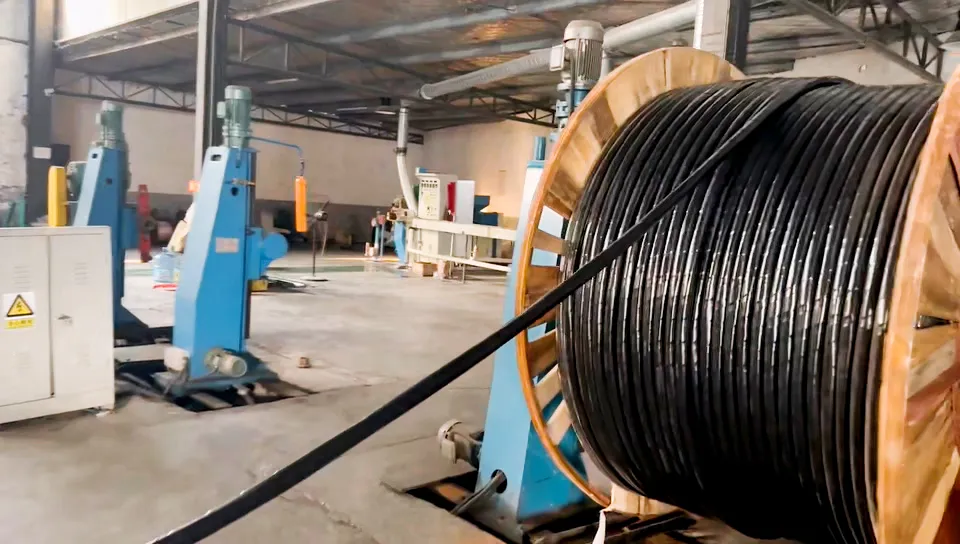Buying Cables in Bulk: Key Considerations for Contractors
Time: 2025-06-17 15:10:37
Source: Henan Province Jianyun Cable Co., Ltd.
Overview of Bulk Cable Purchasing
Bulk cable purchasing involves acquiring large quantities of electrical, data, or specialty cables for construction, telecommunications, or industrial projects. For contractors, buying in bulk offers cost savings, ensures material availability, and streamlines project logistics. However, it requires careful planning to balance quality, compliance, and efficiency while avoiding overstocking or supply chain disruptions. Key considerations include project specifications, supplier reliability, cost management, and quality assurance.
Key Considerations for Contractors
Understanding Project Requirements
Accurately assessing project needs is critical to avoid shortages or excess inventory. Contractors should:
-
Review the Bill of Materials or Material Take-Off to determine cable types, quantities, and lengths.
-
Account for site-specific conditions, such as indoor vs. outdoor installations or exposure to moisture, heat, or mechanical stress.
-
Include a contingency (e.g., 5–10%) for unexpected needs or cutting losses during installation.
Inaccurate forecasting can lead to production delays or increased carrying costs for surplus materials.
Cable Specifications and Standards
Selecting cables that meet project specifications and regulatory standards ensures safety and performance. Contractors should:
-
Choose cables compliant with standards for electrical safety, fire resistance, and environmental suitability.
-
Opt for high-quality materials, such as pure copper conductors over copper-clad aluminum, for better conductivity and durability.
-
Specify cable types (e.g., high-speed network cables, electrical wiring, or solar cables) based on application needs.
-
Consider environmental factors, such as UV-resistant or low-smoke zero-halogen cables for public spaces.
Non-compliant or low-quality cables may result in system failures or regulatory penalties.
Supplier Selection and Reliability
Partnering with a reputable supplier is essential for consistent quality and timely delivery. Contractors should:
-
Evaluate suppliers with certifications for quality management and a track record of handling bulk orders.
-
Request samples to verify cable quality, including conductor purity and insulation integrity.
-
Assess production capacity and lead times, especially for custom or high-voltage cables, which may face shortages.
-
Consider suppliers offering just-in-time delivery to minimize storage needs.
Conducting factory audits or engaging third-party inspectors can further ensure supplier reliability.
Cost Management and Budgeting
Bulk purchasing can reduce costs, but contractors must balance savings with quality. Key strategies include:
-
Negotiate discounts for large orders, as suppliers often offer lower unit prices for bulk purchases.
-
Monitor raw material price fluctuations to time purchases strategically.
-
Avoid the cheapest options, as low-cost cables may use inferior materials, leading to replacements or failures.
-
Account for shipping, storage, and handling costs, which can offset savings if not planned properly.
Typically, cables account for 10–15% of an electrical system’s budget, so precise budgeting is critical.
Logistics and Storage
Effective logistics and storage management prevent delays and material damage. Contractors should:
-
Choose cost-effective shipping methods, such as sea freight for non-urgent bulk orders or air freight for time-sensitive needs.
-
Ensure proper packaging to protect cables from moisture, impact, or UV exposure during transit.
-
Plan storage facilities with adequate space, ventilation, and security to prevent theft or degradation.
-
Implement inventory tracking systems to manage stock and avoid over-ordering.
Poor logistics can lead to project delays, while inadequate storage may result in material loss.
Quality Assurance and Testing
Ensuring cable quality is vital to prevent safety hazards and performance issues. Contractors should:
-
Conduct pre-shipment inspections to verify compliance with specifications and standards.
-
Perform post-delivery tests for electrical performance, mechanical durability, and environmental resistance.
-
Require suppliers to provide certification documents and batch traceability for accountability.
-
Engage third-party testing agencies for critical projects to validate quality.
Defective cables can lead to costly rework or safety risks, such as electrical fires.
Common Mistakes to Avoid
-
Underestimating Requirements: Failing to account for contingencies or site conditions can cause shortages, delaying projects.
-
Prioritizing Cost Over Quality: Choosing low-cost cables often leads to poor performance or frequent replacements.
-
Ignoring Standards: Non-compliant cables may fail inspections or pose safety risks, leading to fines or rework.
-
Overstocking: Excess inventory ties up capital and risks loss due to price fluctuations or theft.
-
Neglecting Supplier Due Diligence: Unreliable suppliers may deliver substandard products or miss deadlines.
Summary Table: Key Considerations and Actions
|
Consideration
|
Key Actions
|
Potential Risks
|
|
Project Requirements
|
Review BOM/MTO, include 5–10% contingency
|
Shortages, overstocking
|
|
Cable Specifications
|
Ensure compliance, use pure copper
|
Non-compliance, system failures
|
|
Supplier Selection
|
Verify certifications, assess capacity, request samples
|
Unreliable delivery, poor quality
|
|
Cost Management
|
Negotiate bulk discounts, monitor material prices
|
High costs, inferior materials
|
|
Logistics & Storage
|
Plan shipping, secure storage, track inventory
|
Delays, material damage
|
|
Quality Assurance
|
Inspect pre/post-delivery, require certifications
|
Defective products, safety risks
|
Conclusion
Buying cables in bulk offers contractors significant cost savings and logistical benefits but requires meticulous planning. By understanding project requirements, selecting compliant cables, partnering with reliable suppliers, managing costs, optimizing logistics, and ensuring quality, contractors can enhance project efficiency and safety. Avoiding common mistakes, such as prioritizing cost over quality or neglecting supplier due diligence, is critical to success. Strategic bulk purchasing ensures timely, cost-effective, and high-quality cable solutions for large-scale projects.
